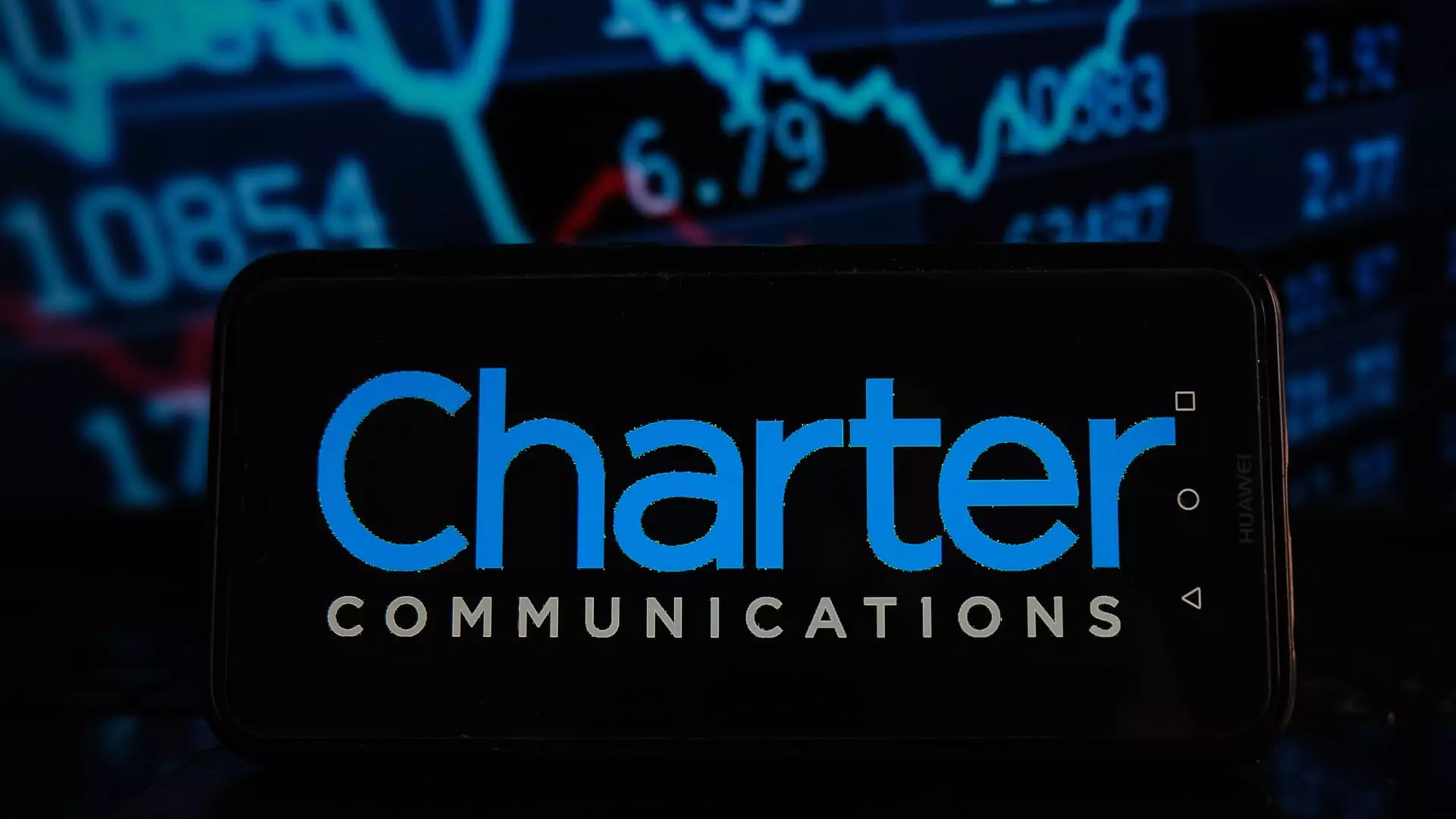In a bold move that signals a worrying trend in the broadband industry, Charter Communications and Cox Communications have entered into a merger agreement valued at an astonishing $34.5 billion. While the financial figures might sound impressive—$21.9 billion in equity and an augmented debt load of $12.6 billion—they mask a deeper issue that could undermine the very fabric of competition in the marketplace. Such a consolidation raises alarm bells, not just for consumers but for the overall vitality of the broadband sector, already besieged by emerging wireless technologies and waning traditional cable subscriptions.
Charter, the second-largest cable entity behind Comcast, has been struggling with customer retention. Its recent increase in the stock market—an 8% bump in premarket trading—seems to offer a façade of optimism. However, the reality is sobering: Charter lost 60,000 broadband customers and 181,000 cable TV subscribers in just the first quarter of this year. This concerning decline indicates that even the largest traditional providers can no longer count on their old business models.
A Concerning Landscape: The Threat of a Monopolized Broadband Future
With the rise of 5G and fixed wireless alternatives, the broadband sphere has transformed dramatically. The merger between two massive companies could create an oligopoly, where competition dwindles, innovation stagnates, and consumers ultimately suffer. The traditional cable television model is already feeling the strain, spearheaded by products like Netflix and Hulu that offer easily accessible alternatives to towering cable bills. Now, two of the largest players in the field are teaming up at a time when the very definition of what constitutes “home internet” is shifting faster than ever.
By leaning heavily into their mobile offerings, Charter has been grappling with retaining customers, evidenced by the growth of its mobile lines to 10.5 million as of the last quarter. However, one cannot help but question whether these measures signal innovation or desperation. Instead of fostering a competitive environment where consumers can choose from a mix of pricing options and service commitments, the merger could lead to skyrocketing costs and complacency, reflected through yet another wave of customer dissatisfaction.
What’s at Stake: A Call for Vigilance
The newly formed entity intends to carry the Charter name under its Spectrum brand, which is indicative of a corporate veneer masking an overwhelming power imbalance. Charter CEO Chris Winfrey will remain at the helm, while key figures from Cox like chairman Alex Taylor will also contribute to decision-making. With the melding of two corporate cultures, the risk of losing consumer-focused innovation cannot be understated. As a left-leaning, free-market advocate, the unsettling landscape of consolidating power necessitates proactive consumer activism and regulatory scrutiny.
Moreover, the promise of $500 million in annualized cost synergies within three years raises additional red flags. Why should consumers foot the bill for corporate efficiencies? Rather than leveraging these synergies to enhance user experience or to offer competitive pricing, they may instead line the pockets of shareholders or enrich executive compensation packages. The dangers of such a merger extend beyond corporate profitability; they inevitably spill into the lives of everyday consumers who may find themselves scrutinized as profit margins fluctuate.
The Overarching Sentiment: Protecting the Consumer
The merger between Charter and Cox Communications isn’t just about two businesses joining forces; it symbolizes a critical moment in the battle for consumer rights and competitive freedom. As we witness the potential for a monopolized landscape, people must remain vigilant, advocating for policies that ensure competition thrives rather than succumbs to the gravitational pull of corporate synergy and domination. Now more than ever, it’s essential for consumers to raise their voices against a trend that prioritizes corporate gains over individual experience and satisfaction. In a society that thrives on competition and choice, must we settle for less?

